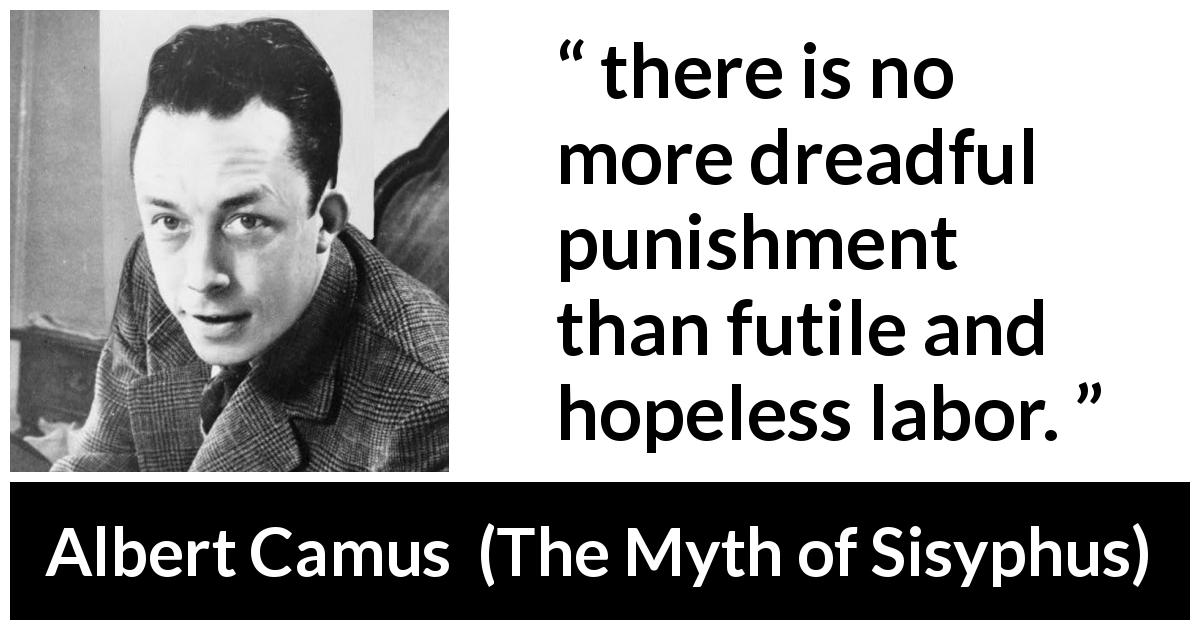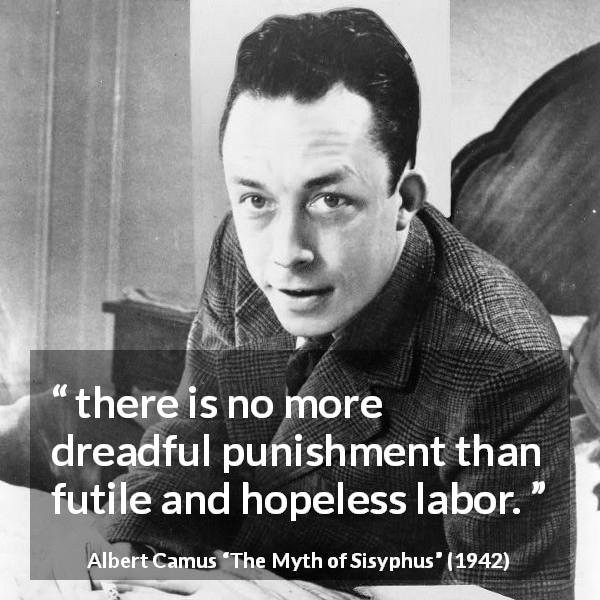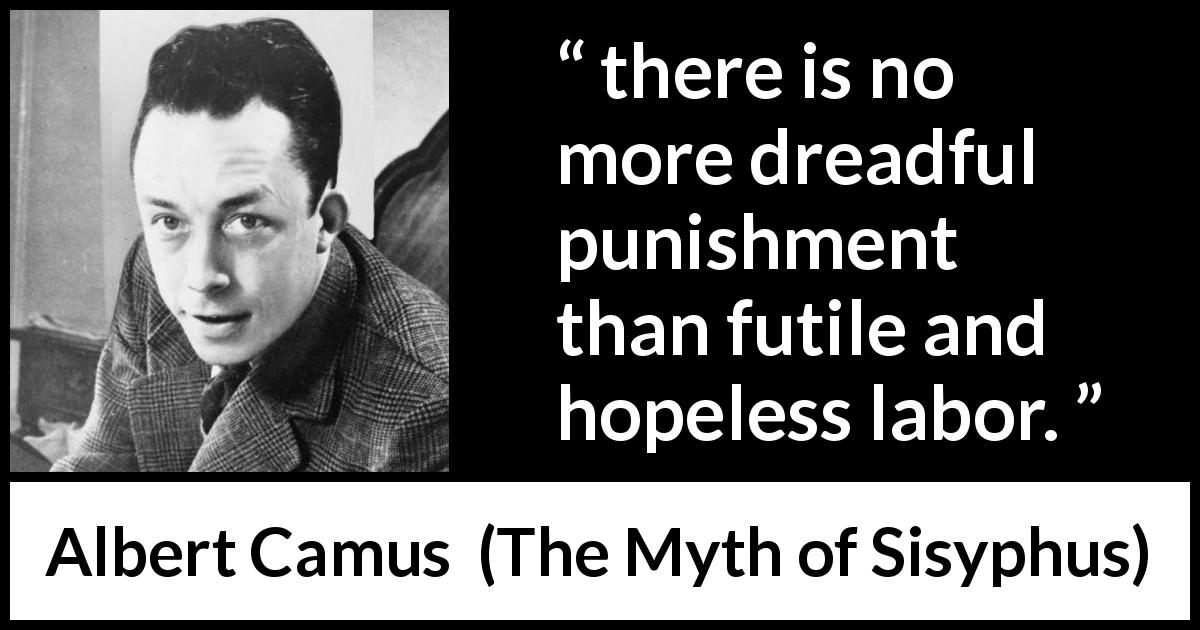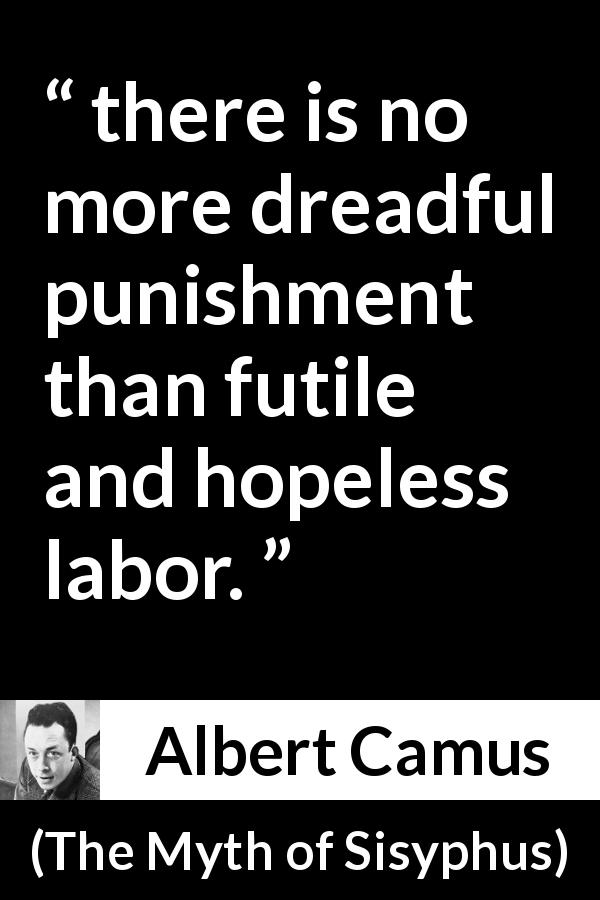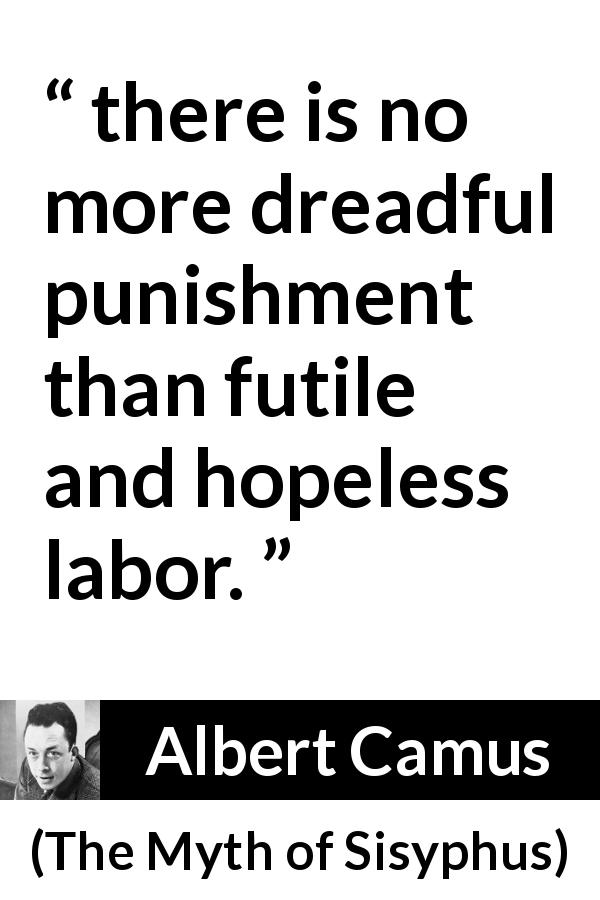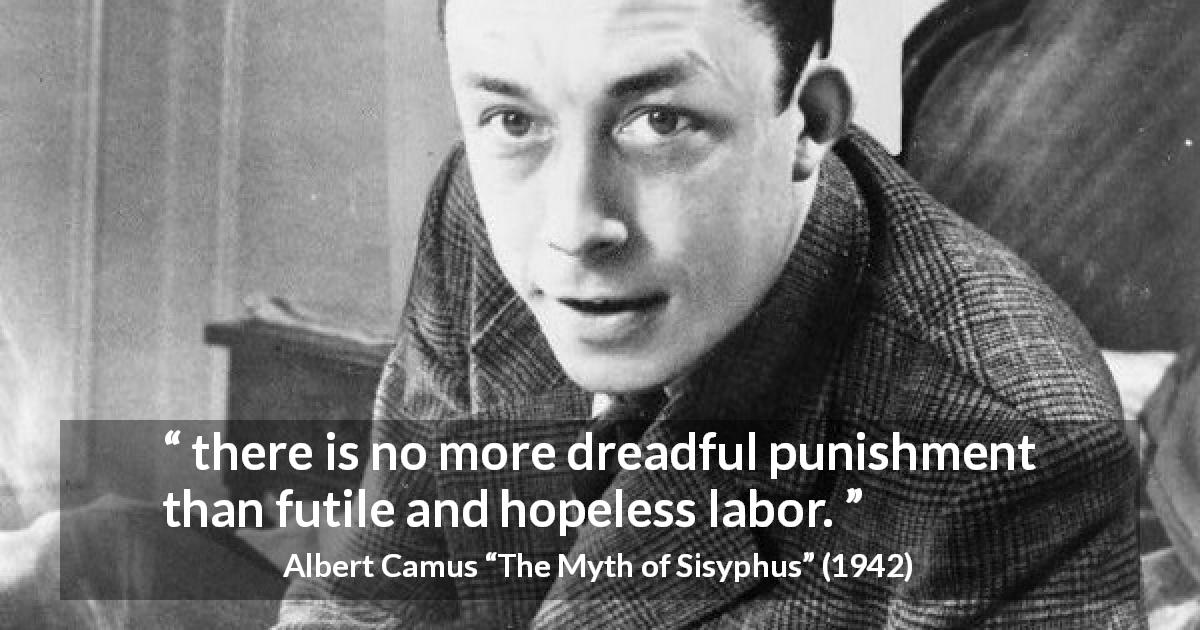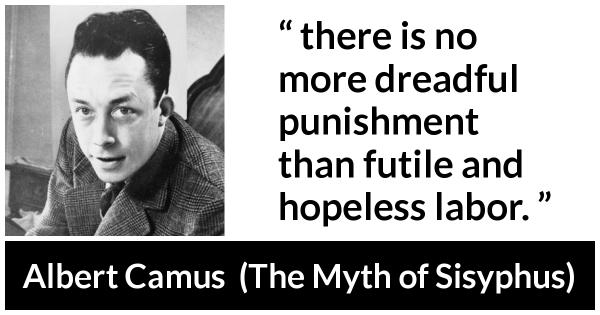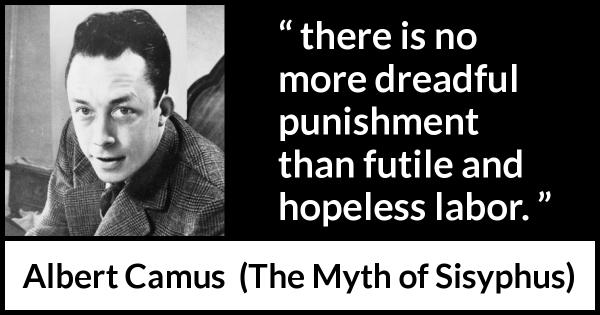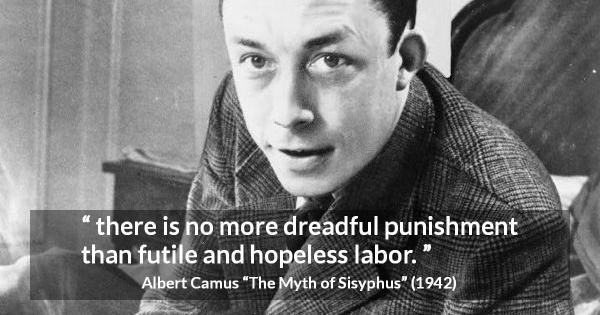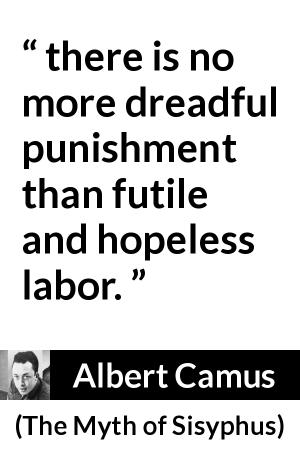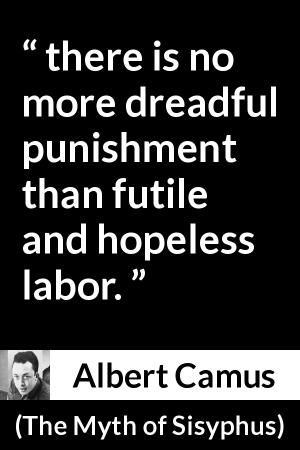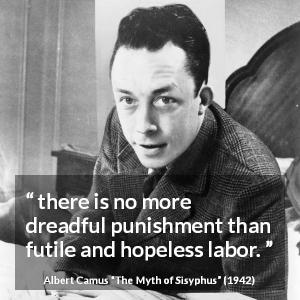“ there is no more dreadful punishment than futile and hopeless labor. ”
Albert Camus, The Myth of Sisyphus (1942). copy citation
| Author | Albert Camus |
|---|---|
| Source | The Myth of Sisyphus |
| Topic | futility punishment despair |
| Date | 1942 |
| Language | English |
| Reference | |
| Note | Translated by Justin O'Brien |
| Weblink | http://www2.hawaii.edu/~freeman/courses/phil360/16.%20Myth%20of%20Sisyph... |
Context
“Not the divine fable that amuses and blinds, but the terrestrial face, gesture, and drama in which are summed up a difficult wisdom and an ephemeral passion.
The Myth of Sysiphus The gods had condemned Sisyphus to ceaselessly rolling a rock to the top of a mountain, whence the stone would fall back of its own weight. They had thought with some reason that there is no more dreadful punishment than futile and hopeless labor. If one believes Homer, Sisyphus was the wisest and most prudent of mortals. According to another tradition, however, he was disposed to practice the profession of highwayman. I see no contradiction in this.” source
The Myth of Sysiphus The gods had condemned Sisyphus to ceaselessly rolling a rock to the top of a mountain, whence the stone would fall back of its own weight. They had thought with some reason that there is no more dreadful punishment than futile and hopeless labor. If one believes Homer, Sisyphus was the wisest and most prudent of mortals. According to another tradition, however, he was disposed to practice the profession of highwayman. I see no contradiction in this.” source
Original quote
